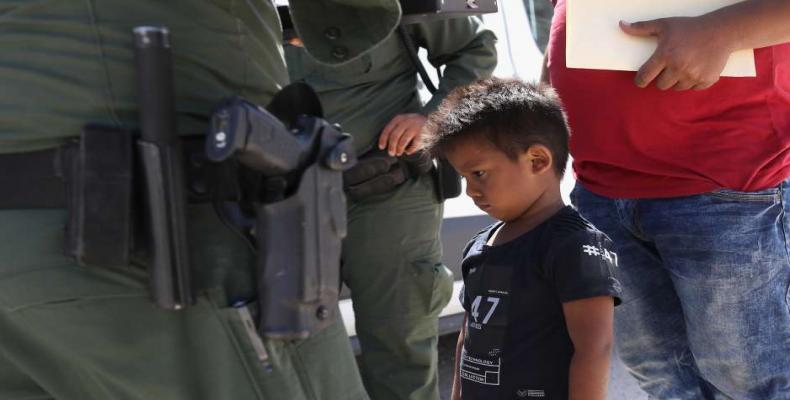Tegucigalpa, September 27 (RHC)-- Honduras has signed a safe-third country-type deal with the United States government that will force asylum-seekers who travel through the country to first seek protection there, effectively creating a barrier along the entire Central American region.
The new migration deal is similar to agreements signed by El Salvador on September 20 and Guatemala on July 26. The countries have released few details about how the agreements would be implemented.
A senior official at the Department of Homeland Security explained that with the deal, if a person arrives at the southern border seeking protection without first having sought asylum in one of those three Central American countries that they traveled through, "they will be returned" in order to do so.
These agreements made with right-wing governments of the three Central American countries will complement President Donald Trump administration's latest anti-migrant rule that would curtail asylum applications at the U.S.-Mexico border, requiring migrants to first attempt international protection in a safe third country, essentially creating a barrier to curb migration from the area, known as the Northern Triangle.
U.S. Immigration and Customs Enforcement (ICE) is currently detaining more than 50,000 migrants a day, most of them are asylum seekers protected by international law, escaping political persecution, gang and drug-related violence.
According to the 1951 Refugee Convention, which is a binding document for all the United Nations members, a country like the U.S. can refuse to grant refuge to asylum seekers and send them to a country that is considered "safe" to their lives. Canada struck a pact of those characteristics back in 2002.
With the new arrangments pushed by Trump, the U.S. can now shift the burden onto other countries like Honduras, El Salvador, Guatemala or Mexico, as asylum hearings can take months or even years.
Human rights organizations and migration advocates argue that sending people seeking asylum back to the region where they fled, even if not to their home country, violates international commitments meant to prevent vulnerable migrants from being returned to danger, especially to countries known for drug and gang-related violence.
Honduras had a homicide rate of 40 per 100,000 people in 2017, while Guatemala's was 22.4 per 100,000 inhabitants, among the highest in the Western Hemisphere, according to InSight Crime.
Even the U.S. government admits the dangers present in those countries. The State Department's travel advisory for Honduras warns of "violent crime, such as homicide and armed robbery, is common...violent gang activity, such as extortion, violent street crime, rape, and narcotics and human trafficking, is widespread.”
While Guatemala “remains among the most dangerous countries in the world,” with an “alarmingly high murder rate.”


